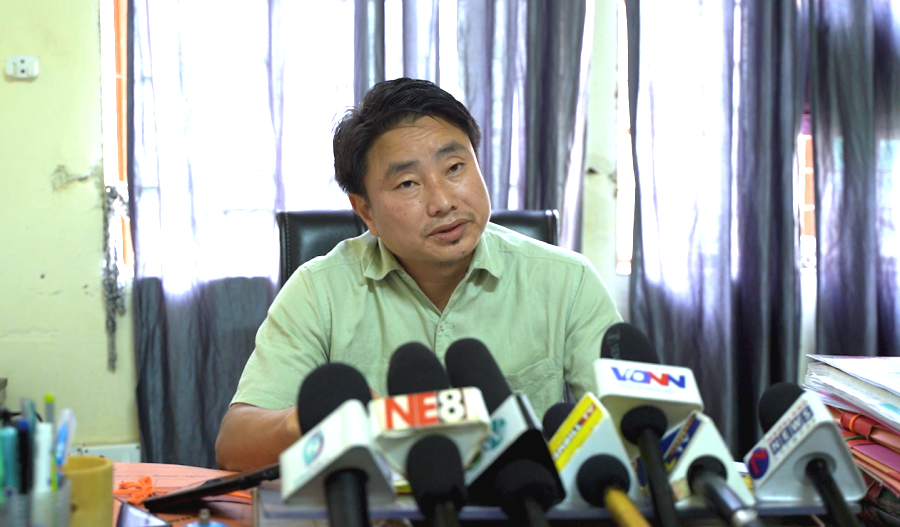Dimapur administration directs that 33% of ILP fees collected will be remitted to village councils based on verified records.
Share

DIMAPUR — Dimapur district administration on Thursday convened a meeting with chairmen of all 31 Sadar village councils to discuss the implementation of the government’s recent directive on Inner Line Permit (ILP) fees.
The meeting was held at the DC’s conference hall, Dimapur, and chaired by Sub-Divisional Officer (Sadar) Dimapur, Wiridin.
Briefing media persons after the meeting, the SDO said that the deliberations followed a notification issued through the office of the commissioner, Nagaland, directing that 33% of ILP fees collected under each category should be remitted to the village council concerned.
The remittance will be made on the basis of records of ILP holders residing in the villages, as maintained by the respective councils.
WATCH MORE:
A key agenda of the meeting was standardising the registration of ILP holders at the village level.
A format was issued to all chairmen, requiring councils to record comprehensive details of ILP holders, including name, application number, contact details, serial number, category of ILP, permanent address, validity and expiry date, guarantor’s name and Aadhaar number, and whether the permit was obtained offline or online.
Wiridin clarified that village councils and the public are not authorised to conduct ILP checking.
However, they are mandated to maintain and update registers of ILP holders residing in their jurisdictions.
The registers are to be submitted to the DC’s office either on a monthly basis or upon completion of the registration process.
He explained that the revenue sharing will be determined from these registers.
Once the records are verified, 33% of ILP fees collected will be disbursed to the respective councils in accordance with the government directive.
The authority concerned —whether the commissioner’s office or the DC’s office—will finalise the mode of disbursement.
The SDO further underscored the importance of proper documentation and accountability, stressing that the system would ensure both transparency in fee collection and benefit-sharing with local councils.
Nearly all chairmen of the 31 Sadar village councils attended the meeting and were urged to cooperate fully in implementing the directive.